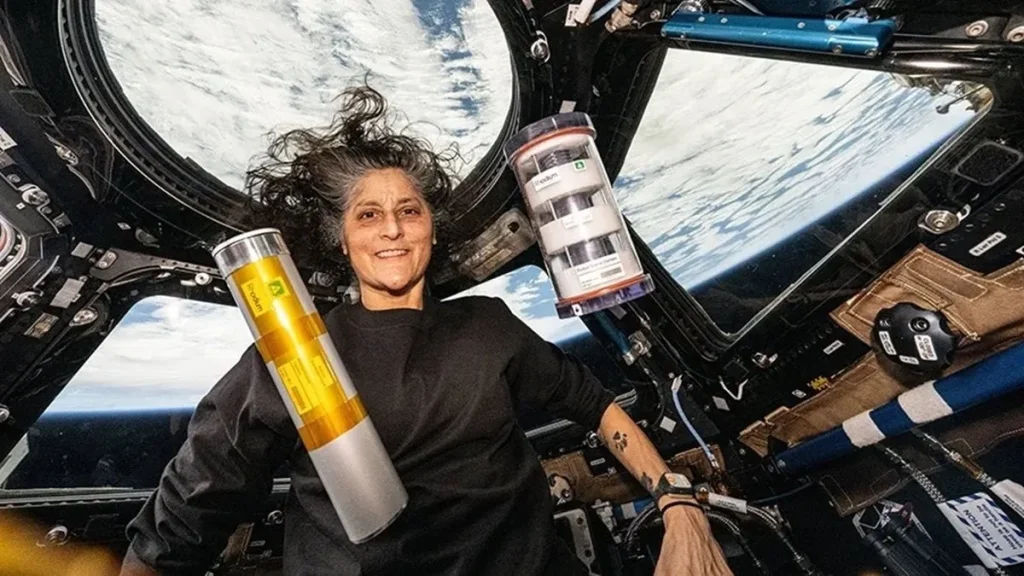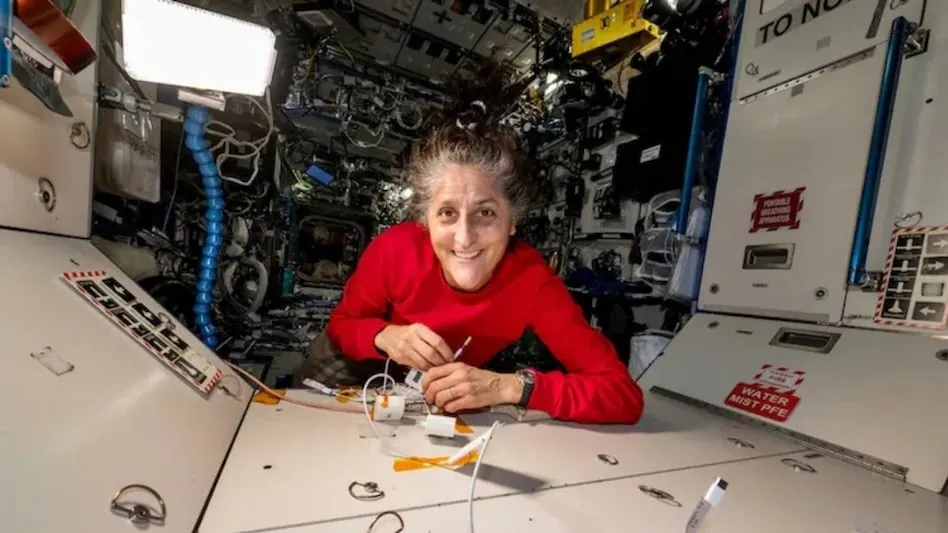Commander Sunita Williams is preparing for her scheduled return to Earth aboard the SpaceX Dragon spacecraft in February 2025. As part of her preparation, she has been undergoing specialized training to ensure a smooth and safe journey back from the International Space Station (ISS).

Key Maintenance and Health Checks
Williams has been focused on critical maintenance tasks, including readying a U.S. spacesuit for an upcoming spacewalk. Following these checks, she collaborated with NASA Flight Engineer Butch Wilmore on eye health examinations using the Ultrasound 2 device. The astronauts alternated scanning each other’s eyes, while ground-based medical teams monitored the condition of their corneas, lenses, and optic nerves in real-time.
Supporting ISS Operations
In addition to medical assessments, Wilmore worked on transferring cargo between key modules and installing air quality sensors in the Quest airlock. These tasks are vital for maintaining equipment and living conditions aboard the ISS.
Researching Micro-Algae for Future Missions
Meanwhile, Flight Engineer Nick Hague explored innovative ways to use micro-algae as a sustainable resource for future space missions. His research involved preparing samples for the BioLab research facility, aiming to study the effects of microgravity and radiation on these organisms. The findings could pave the way for using micro-algae to remove carbon dioxide, produce oxygen, and grow food on long-term missions to destinations like the Moon and Mars.

Departure Simulations with the Crew
As part of the departure training, Hague joined Williams, Wilmore, and cosmonaut Aleksandr Gorbunov inside the SpaceX Dragon spacecraft. Hague and Gorbunov, who arrived at the ISS together in late September, are also preparing for their return to Earth in the spring, alongside Williams and Wilmore.
Advancing Space Exploration
These activities underscore NASA’s commitment to advancing human spaceflight and ensuring astronaut health through rigorous training and research. The crew’s efforts aboard the ISS contribute not only to the station’s operation but also to the future of deep space exploration.
